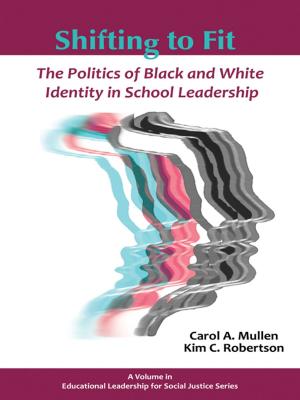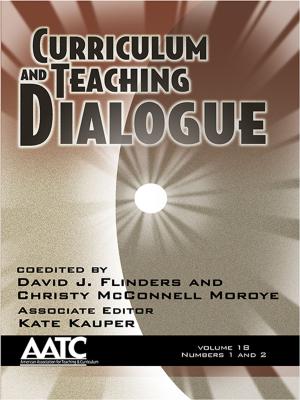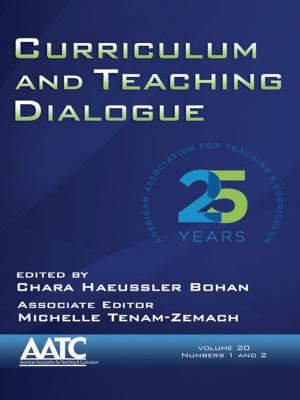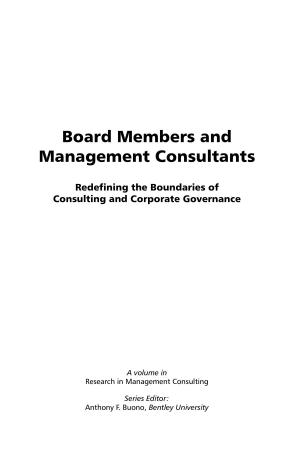Improving Urban Schools
Equity and Access in K16 STEM Education
Nonfiction, Reference & Language, Education & Teaching, History, Higher Education| Author: | ISBN: | 9781623962326 | |
| Publisher: | Information Age Publishing | Publication: | April 1, 2013 |
| Imprint: | Information Age Publishing | Language: | English |
| Author: | |
| ISBN: | 9781623962326 |
| Publisher: | Information Age Publishing |
| Publication: | April 1, 2013 |
| Imprint: | Information Age Publishing |
| Language: | English |
Although STEM (Science, Technology, Engineering, and Mathematics) has been diversely defined by various researchers (e.g. Buck Institute, 2003; Capraro & Slough, 2009; Scott, 2009; Wolf, 2008), during the last decade, STEM education has gained an increasing presence on the national agenda through initiatives from the National Science Foundation (NSF) and the Institute for Educational Sciences (IES). The rate of technological innovation and change has been tremendous over the past ten years, and this rapid increase will only continue. STEM literacy is the power to “identify, apply, and integrate concepts from science, technology, engineering, and mathematics to understand complex problems and to innovate to solve them” (Washington State STEM, 2011, Internet). In order for U.S. students to be on the forefront of this revolution, ALL of our schools need to be part of the STEM vision and guide students in acquiring STEM literacy. Understanding and addressing the challenge of achieving STEM literacy for ALL students begins with an understanding of its element and the connections between them. In order to remain competitive, the Committee on Prospering in the Global Economy has recommended that the US optimize “its knowledgebased resources, particularly in science and technology” (National Academies, 2007, p. 4). Optimizing knowledgebased resources needs to be the goal but is also a challenge for ALL educators (Scheurich & Huggins, 2009). Regardless, there is little disagreement that contemporary society is increasingly dependent on science, technology, engineering, and mathematics and thus comprehensive understandings are essential for those pursuing STEM careers. It is also generally agreed that PK12 students do not do well in STEM areas, both in terms of national standards and in terms of international comparisons (Kuenzi, Matthews, & Mangan, 2006; Capraro, Capraro, Yetkiner, Corlu, Ozel, Ye, & Kim, 2011). The question then becomes what might PK12 schools do to improve teachers’ and students’ STEM knowledge and skills? This book will look at equity and access issues in STEM education from PK12, university, and administrative and policy lenses.
Although STEM (Science, Technology, Engineering, and Mathematics) has been diversely defined by various researchers (e.g. Buck Institute, 2003; Capraro & Slough, 2009; Scott, 2009; Wolf, 2008), during the last decade, STEM education has gained an increasing presence on the national agenda through initiatives from the National Science Foundation (NSF) and the Institute for Educational Sciences (IES). The rate of technological innovation and change has been tremendous over the past ten years, and this rapid increase will only continue. STEM literacy is the power to “identify, apply, and integrate concepts from science, technology, engineering, and mathematics to understand complex problems and to innovate to solve them” (Washington State STEM, 2011, Internet). In order for U.S. students to be on the forefront of this revolution, ALL of our schools need to be part of the STEM vision and guide students in acquiring STEM literacy. Understanding and addressing the challenge of achieving STEM literacy for ALL students begins with an understanding of its element and the connections between them. In order to remain competitive, the Committee on Prospering in the Global Economy has recommended that the US optimize “its knowledgebased resources, particularly in science and technology” (National Academies, 2007, p. 4). Optimizing knowledgebased resources needs to be the goal but is also a challenge for ALL educators (Scheurich & Huggins, 2009). Regardless, there is little disagreement that contemporary society is increasingly dependent on science, technology, engineering, and mathematics and thus comprehensive understandings are essential for those pursuing STEM careers. It is also generally agreed that PK12 students do not do well in STEM areas, both in terms of national standards and in terms of international comparisons (Kuenzi, Matthews, & Mangan, 2006; Capraro, Capraro, Yetkiner, Corlu, Ozel, Ye, & Kim, 2011). The question then becomes what might PK12 schools do to improve teachers’ and students’ STEM knowledge and skills? This book will look at equity and access issues in STEM education from PK12, university, and administrative and policy lenses.















